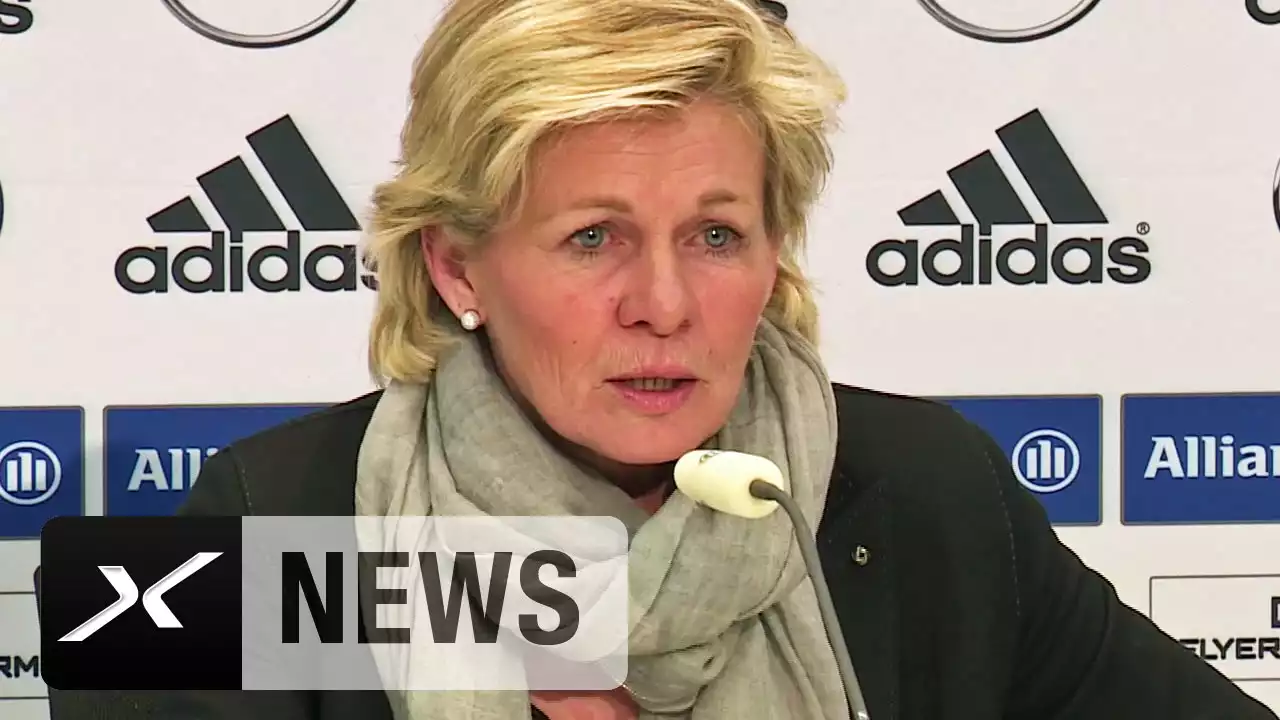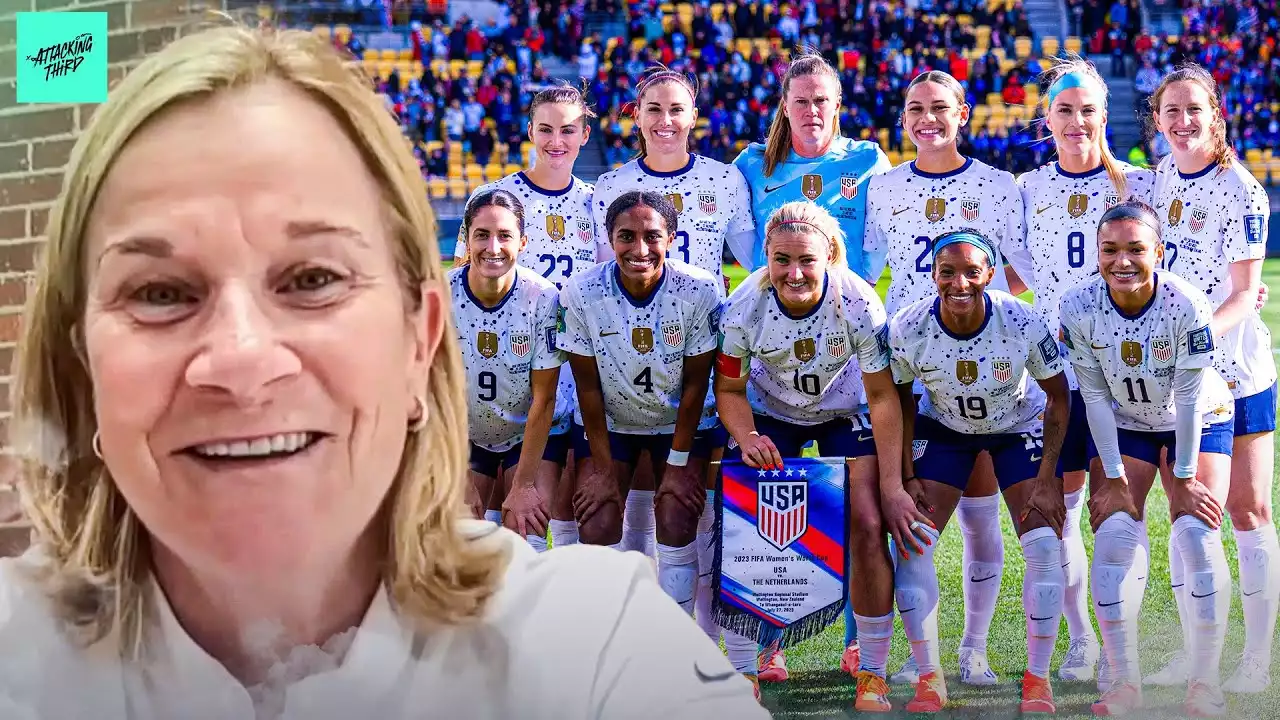The rise of women's football managers
In the early years of women's football, managerial roles were predominantly held by men. However, as the sport gained popularity and recognition, women began to break into the managerial scene, bringing their unique perspectives and experiences to the table.
One of the trailblazers in women's football management is Helenio Herrera. Known for his innovative coaching methods, Herrera revolutionized the game during his time as the manager of the Italian women's national team in the 1960s. He introduced new training techniques and tactical systems that elevated the performance of his team and laid the foundation for future managers to build upon.
Another influential figure in the rise of women's football managers is Vic Akers. Akers, who served as the manager of the Arsenal Women's team for over two decades, led the club to numerous domestic and international successes. His meticulous approach to coaching and emphasis on player development transformed Arsenal into a dominant force in women's football.
The rise of women's football managers not only signifies a shift in the gender dynamics of the sport but also highlights the growing recognition of their expertise and contributions to the game. These managers have proven that gender is not a barrier to success in football and have inspired countless aspiring female managers to follow in their footsteps.
Helenio Herrera - The trailblazer
Helenio Herrera is widely regarded as one of the pioneers of women's football management. Born in Argentina in 1910, Herrera began his managerial career in men's football but soon found himself drawn to the women's game. In the 1960s, he took charge of the Italian women's national team, where he implemented his famous "catenaccio" defensive system.
Herrera's approach to coaching was characterized by discipline, meticulous attention to detail, and a strong focus on defensive organization. His innovative tactics and training methods revolutionized the way the game was played, not only in women's football but also in men's football.
Under Herrera's guidance, the Italian women's national team enjoyed unprecedented success, winning multiple international tournaments and establishing themselves as one of the powerhouses of the women's game. His legacy continues to inspire managers to this day, and his impact on the sport cannot be overstated.
Vic Akers - The Arsenal legend
When discussing the most influential managers in women's football, it is impossible to overlook the contributions of Vic Akers. Akers, who served as the manager of the Arsenal Women's team from 1987 to 2009, is widely regarded as one of the greatest managers in the history of the women's game.
Akers' tenure at Arsenal was nothing short of remarkable. Under his guidance, the team won an astonishing 32 major trophies, including 10 Women's Premier League titles and 9 FA Cups. His commitment to excellence, attention to detail, and ability to identify and nurture talent transformed Arsenal into a dominant force in women's football.
Beyond his success on the pitch, Akers played a crucial role in the development of women's football infrastructure in England. He was instrumental in establishing Arsenal's state-of-the-art training facilities and youth academy, which have played a significant role in the development of future stars.
Vic Akers' impact on women's football extends far beyond his time at Arsenal. His legacy as a manager and his dedication to the sport continue to inspire generations of female footballers and managers, shaping the future of the game.
Pia Sundhage - Leading the US Women's National Team to success
Pia Sundhage, a former Swedish international player, made history as the coach of the United States Women's National Team from 2008 to 2012. During her tenure, Sundhage led the team to unprecedented success, including two Olympic gold medals and a runner-up finish in the 2011 FIFA Women's World Cup.
Sundhage's coaching style emphasized attacking football and creative play, which resonated with her players and produced exceptional results. Her ability to create a positive and inclusive team environment fostered a winning mentality and united the players towards a common goal.
Beyond her achievements on the pitch, Sundhage played a crucial role in raising the profile of women's football in the United States. Her charismatic personality and passion for the game captivated fans and inspired a new generation of female footballers.
Pia Sundhage's impact on women's football goes beyond her success as a coach. Her ability to unite a team and instill a winning mentality has set a benchmark for future managers, while her passion for the game continues to inspire female athletes around the world.
Silvia Neid - Transforming the German women's team
Silvia Neid, a former German international player, left an indelible mark on women's football as the manager of the German national team from 2005 to 2016. Under her guidance, the team achieved unprecedented success, winning the FIFA Women's World Cup in 2007 and the gold medal at the 2016 Olympic Games.
Neid's managerial approach was characterized by her tactical acumen, attention to detail, and ability to adapt to different opponents. Her team's disciplined defensive organization and quick, incisive attacking play set them apart from their competitors and established Germany as a dominant force in women's football.
Off the field, Neid played a crucial role in promoting gender equality in football. She advocated for equal opportunities for women in coaching and management roles, inspiring young women to pursue careers in the sport.
Silvia Neid's impact on women's football cannot be understated. Her tactical brilliance, leadership skills, and commitment to equality have paved the way for future generations of female footballers and managers, shaping the landscape of the women's game.
Jill Ellis - Guiding the US Women's National Team to back-to-back World Cup victories
Jill Ellis, an English-American soccer coach, made history as the head coach of the United States Women's National Team from 2014 to 2019. Under her leadership, the team achieved unparalleled success, winning back-to-back FIFA Women's World Cup titles in 2015 and 2019.
Ellis' coaching philosophy emphasized a possession-based style of play, combined with a strong focus on team unity and mental resilience. Her ability to create an environment that fostered individual talent while promoting teamwork and camaraderie was instrumental in the team's success.
Off the field, Ellis has been a vocal advocate for gender equality in football. She has used her platform to raise awareness about the challenges faced by female athletes and has been a strong proponent of equal pay for women in the sport.
Jill Ellis' impact on women's football goes far beyond her achievements on the pitch. Her leadership, dedication to the game, and advocacy for equality have inspired countless female footballers and cemented her status as one of the most influential managers in the history of the sport.
Sarina Wiegman - Taking the Netherlands to new heights
Sarina Wiegman, a former Dutch international player, has made a significant impact on women's football as the manager of the Netherlands women's national team since 2016. Under her guidance, the team achieved unprecedented success, winning the UEFA Women's Euro 2017 and finishing as runners-up in the 2019 FIFA Women's World Cup.
Wiegman's coaching style is characterized by her emphasis on technical proficiency, attacking play, and tactical flexibility. Her ability to adapt her team's tactics to exploit opponents' weaknesses and maximize her players' strengths has been key to the team's success.
Off the field, Wiegman has played a crucial role in promoting women's football in the Netherlands. Her achievements have inspired a new generation of female footballers and have helped raise the profile of the sport in the country.
Sarina Wiegman's impact on women's football is undeniable. Her tactical brilliance, ability to develop young talent, and commitment to the growth of the sport have positioned the Netherlands as a force to be reckoned with in women's football.
Asako Takakura - Revolutionizing Japanese women's football
Asako Takakura, a former Japanese international player, has made a significant impact on women's football as the manager of the Japanese women's national team since 2016. Under her leadership, the team has achieved remarkable success, winning the AFC Women's Asian Cup in 2018 and qualifying for the 2020 Olympic Games.
Takakura's coaching philosophy emphasizes technical proficiency, possession-based play, and an attacking mindset. Her team's fluid style of play and ability to break down opponents' defenses have set them apart from their competitors and have earned them recognition on the world stage.
Off the field, Takakura has been a driving force behind the growth of women's football in Japan. Her success has inspired young girls to take up the sport and has helped break down gender barriers within the industry.
Asako Takakura's impact on women's football in Japan is immeasurable. Her tactical acumen, commitment to player development, and advocacy for gender equality have propelled Japanese women's football to new heights and have positioned the country as a powerhouse in the women's game.
The impact of these managers on women's football
The achievements of these remarkable managers have had a transformative impact on women's football. Their dedication, tactical brilliance, and ability to nurture talent have elevated the sport to new heights and have inspired a new generation of female footballers.
Through their innovative strategies and commitment to equality, these managers have not only improved team performances but have also paved the way for female athletes to pursue their dreams and break barriers in a traditionally male-dominated sport.
Women's football continues to grow and gain recognition on a global scale, thanks in large part to the contributions of these visionary managers. Their legacies will forever be etched in the history of the sport, serving as an inspiration for future generations of female footballers and managers.
As we celebrate the achievements of these remarkable individuals, let us continue to support and advocate for equal opportunities for women in football, ensuring that the legacy of these managers lives on and the future of women's football remains bright.










